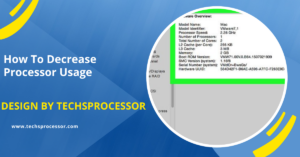Lga 1366 Processor List – The Ultimate Guide!
LGA 1366 processors are Intel’s high-performance CPUs known for their robust performance, triple-channel memory support, and Hyper-Threading.
Introduction:
If you’re delving into the world of computer hardware, you’ve likely come across the term “LGA 1366.” This socket type, also known as Socket B, is notable for its use in high-performance CPUs, particularly in the server and enthusiast markets.
In this guide, we’ll provide an in-depth look at the LGA 1366 processor list, helping you understand their specifications, benefits, and ideal use cases. Whether you’re upgrading your system or building a new rig, this article will serve as a valuable resource.
What is LGA 1366?

LGA 1366, or Land Grid Array 1366, is a CPU socket designed by Intel. It was introduced in 2008 and primarily used for Intel’s high-end desktop and server processors.
The “1366” denotes the number of pins on the socket, which connect to the processor, ensuring efficient communication and power delivery.
Key Features of LGA 1366 Processors:
- Triple-Channel Memory Support: LGA 1366 CPUs typically support triple-channel DDR3 memory, offering enhanced memory bandwidth and improved performance for memory-intensive tasks.
- Integrated Memory Controller: These processors feature an integrated memory controller, reducing latency and increasing overall system performance.
- High Core Count: Many LGA 1366 CPUs boast multiple cores, making them ideal for multitasking, video editing, and other demanding applications.
- Hyper-Threading Technology: Intel’s Hyper-Threading technology allows each core to handle two threads simultaneously, effectively doubling the processing capability.
LGA 1366 Processor List:
Below is a comprehensive list of some of the most notable LGA 1366 processors:
Intel Core i7 Series
Intel Core i7-920:
- Base Clock Speed: 2.66 GHz
- Cores/Threads: 4/8
- TDP: 130W
- Cache: 8 MB
Intel Core i7-940:
- Base Clock Speed: 2.93 GHz
- Cores/Threads: 4/8
- TDP: 130W
- Cache: 8 MB
Intel Core i7-950:
- Base Clock Speed: 3.06 GHz
- Cores/Threads: 4/8
- TDP: 130W
- Cache: 8 MB
Intel Core i7-960:
- Base Clock Speed: 3.20 GHz
- Cores/Threads: 4/8
- TDP: 130W
- Cache: 8 MB
Intel Core i7-975 Extreme Edition:
- Base Clock Speed: 3.33 GHz
- Cores/Threads: 4/8
- TDP: 130W
- Cache: 8 MB
Intel Xeon Series:
Intel Xeon W3520:
- Base Clock Speed: 2.66 GHz
- Cores/Threads: 4/8
- TDP: 130W
- Cache: 8 MB
Intel Xeon W3540:
- Base Clock Speed: 2.93 GHz
- Cores/Threads: 4/8
- TDP: 130W
- Cache: 8 MB
Intel Xeon X5650:
- Base Clock Speed: 2.66 GHz
- Cores/Threads: 6/12
- TDP: 95W
- Cache: 12 MB
Intel Xeon X5670:
- Base Clock Speed: 2.93 GHz
- Cores/Threads: 6/12
- TDP: 95W
- Cache: 12 MB
Intel Xeon X5690:
- Base Clock Speed: 3.46 GHz
- Cores/Threads: 6/12
- TDP: 130W
- Cache: 12 MB
Also Read: How Much Gold In A Processor – Discover The Conductivity, Corrosion Resistance, and More!
Benefits of LGA 1366 Processors:
- Performance: LGA 1366 processors are renowned for their robust performance, making them ideal for heavy multitasking, gaming, and professional applications.
- Overclocking Potential: Many of these CPUs offer excellent overclocking capabilities, allowing enthusiasts to push their systems beyond stock performance levels.
- Longevity: Despite being older technology, LGA 1366 processors remain relevant due to their solid performance and durability.
Ideal Use Cases for LGA 1366 Processors:
- Gaming: With their high core counts and Hyper-Threading technology, LGA 1366 CPUs can handle modern games effectively, especially when paired with a capable GPU.
- Workstations: Professionals working in video editing, 3D rendering, and other resource-intensive fields will benefit from the power and multitasking capabilities of these processors.
- Servers: The robust performance and reliability of LGA 1366 processors make them suitable for server environments, particularly for small to medium-sized businesses.
FAQ’s
1. What is LGA 1366?
LGA 1366, also known as Socket B, is a CPU socket designed by Intel, introduced in 2008 for high-end desktop and server processors.
2. What are the key features of LGA 1366 processors?
Key features include triple-channel DDR3 memory support, an integrated memory controller, high core count, and Hyper-Threading technology.
3. What is the significance of triple-channel memory support in LGA 1366 CPUs?
Triple-channel memory support enhances memory bandwidth and improves performance for memory-intensive tasks.
4. Which processors are included in the Intel Core i7 series for LGA 1366?
The Intel Core i7 series for LGA 1366 includes models like the i7-920, i7-940, i7-950, i7-960, and i7-975 Extreme Edition.
5. What are some notable Intel Xeon processors for LGA 1366?
Notable Intel Xeon processors for LGA 1366 include the Xeon W3520, W3540, X5650, X5670, and X5690.
6. Why are LGA 1366 processors suitable for gaming?
Their high core counts and Hyper-Threading technology allow LGA 1366 processors to handle modern games effectively, especially when paired with a capable GPU.
7. Are LGA 1366 processors good for professional applications?
Yes, they are ideal for tasks like video editing and 3D rendering due to their power and multitasking capabilities.
8. Can LGA 1366 processors be used in servers?
Yes, their robust performance and reliability make them suitable for server environments, particularly for small to medium-sized businesses.
9. What is the overclocking potential of LGA 1366 CPUs?
Many LGA 1366 CPUs offer excellent overclocking capabilities, allowing enthusiasts to push their systems beyond stock performance levels.
10. Are LGA 1366 processors still relevant today?
Despite being older technology, LGA 1366 processors remain relevant due to their solid performance and durability, making them a viable choice for many users.
Conclusion
The LGA 1366 processor list showcases a range of powerful CPUs that have stood the test of time. Whether you’re looking to build a high-performance workstation, upgrade your gaming rig, or set up a reliable server, these processors offer a solid foundation. While newer socket types and CPUs have emerged, LGA 1366 remains a viable choice for many enthusiasts and professionals. Make sure to consider your specific needs and applications when selecting the right processor for your system.





Post Comment